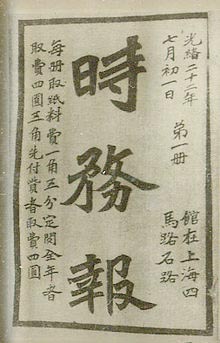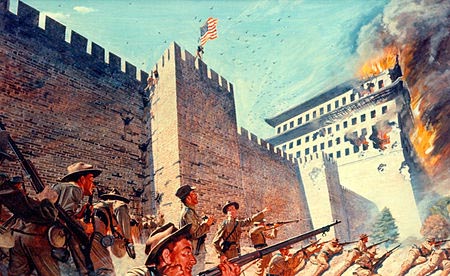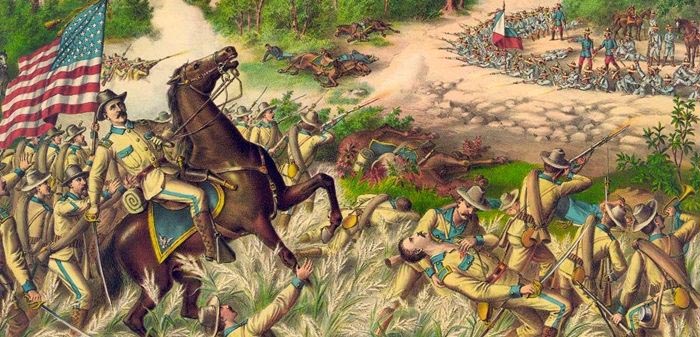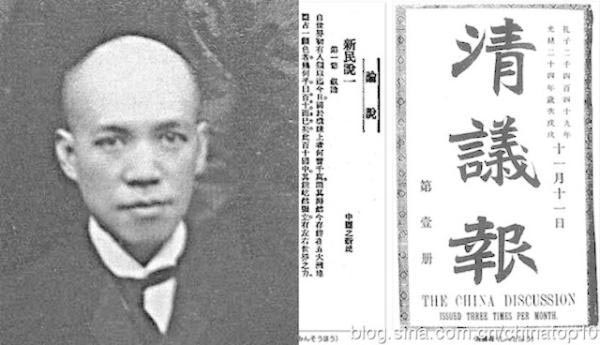A report that appeared in the Aug. 15, 1900 issue of Qing Yi Bao (清議報), a Chinese journal published in Tokyo, lauded Filipino revolutionaries who had refused to give up the fight even after America set up a military government in the Philippines at the turn of the 20th century.

The report, “Recent Situation in the Philippines (菲島近況),” further praised Filipinos for twice engaging “the white man” – the Spaniards, then the Americans – in war.
Because of this, Filipino anti-imperialists deserved the highest respects, it said.
Qing Yi Bao was edited by Liang Qi Chao (梁啟超), a Chinese scholar, journalist, philosopher and foremost reformist of the late Qing Dynasty whose writings had inspired fellow scholars and reform movements.
The report on the Philippines came out at a time when the Boxer Rebellion or the Yihetuan (義和團) Movement, an anti-imperialist armed struggle waged by North China’s peasants and craftsmen, was raging in China. The rebellion had prompted America to send 3,000 of its soldiers in Manila to Beijing as reinforcements for the Eight-Power Allied Forces (the US, Britain, Germany, France, Russia, Japan, Italy and Austria).

Following is a rough translation of the report:
“The resistance of the Filipino people against American rule has not diminished to this day. For them, succumbing is not easy. Manila may be governed by American decrees, but the power and influence of the people outside the capital are vibrant. It is unclear if President (Emilio) Aguinaldo is still alive or dead. Opinions vary, and no unanimous conclusion can be drawn. But Aguinaldo’s heroic spirit remains alive; it is on the rise and not decline. His henchmen and loyalists have sought shelter in the mountains, awaiting and seizing every opportunity to launch strikes against the US Army and make it suffer. What the final result will be, though, is difficult to foretell.
“When the incident (Boxer Rebellion) happened in Peking, the United States dispatched 3,000 American soldiers from Manila to Peking. Taking advantage of this good opportunity, the Filipino people attempted to revive and expand their forces. Indeed, subjugating the Philippines can not be achieved overnight by the US.”
Both the Philippines and China share the experience of having been invaded, occupied, ruled and oppressed by colonialist and imperialist forces. In 1900, when US troops from Manila were deployed to Beijing, they found themselves sharing a common enemy: the Americans.
The uprising in China had divided America’s attention and indirectly aided the Philippine battle against the US. The reduction of American troops in Manila enabled Filipino resistance forces to regroup. And as Filipinos courageously carried on their struggle for independence and self-determination, they would serve as an inspiration to Chinese freedom fighters.
This brings to mind what world revolutionary leaders firmly believe in. In the struggle against imperialism, oppressed nations support each other.

Said the author of the report in Qing Yi Bao: “By driving out the Spaniards and resisting the Americans, the Philippines has become a pioneer of independence in Asia, and serves as a precursor to the attainment of civil rights by my fellow Chinese.
The victory of the Philippines has given the Chinese cause to breathe a sigh of relief, and Westerners to spit out bile.”
And the author paid Filipinos the highest tribute: “The Filipino is a fellow Asian and my kindred. He has twice waged war against the white man, and never faltered despite difficult odds. For this, I must kowtow before him.” — First published in Tulay Fortnightly, Chinese-Filipino Digest 27, nos. 1-2 (June 17-July 7, 2014): 5.
